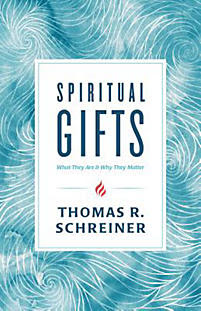The gift of prophecy has been one of those gifts that have been debated on. Some of the criticism of those who believe this gift has ceased is they have based it on false teachers who have given false prophecies. Those who believe that the gift of prophecy still continues have drawn their conclusions from Scripture and their personal experience.
One theologian who believes the gift of prophecy is Wayne Grudem, known for his classic work on Systematic Theology, which has been read and studied by many Christians whether in seminary or small group studies. Grudem has written a book, which was revised in 2000, dealing with prophecy and how it was used in the New Testament era and the church today, titled, The Gift of Prophecy in the New Testament and Today.
In this book, Grudem addresses the difference between prophecies in the Old Testament versus the New Testament. He also addressed the teaching of prophecy in 1 Corinthians which seems to be charismatics go-to when it comes to the continuing of Spiritual gifts such tongues and prophecy. Grudem writes on if all will have the gift of prophecy, which you do not have to be a cessationist to know that not everyone gets the gift of prophecy. He even makes suggestions that the gift of prophecy is a sign of God's blessing on the church and that having prophecy in the church will give people in worship a sense of awe knowing that God is in their midst.
To be fair, Grudem does defend his positions with scripture which we should not expect anything less from someone who has written a massive theology book. Yet there are times it seemed some of his conclusions were a bit of a stretch when it came to applying his findings to the church today.
When I began reading this book, I knew about Grudem's stance when it came to prophecy so his teachings on this was no surprise. Yet, Grudem seems to be going against the Bible when it comes if a prophet misspeaks. Deuteronomy 18 is clear if a prophet speaks and it does not come to pass; it was not from Yahweh. Grudem would suggest that the New Testament, in particular 1 Corinthians 14, that a prophet can be wrong, he can speak wrongly about he claimed to hear from God, and that be challenged. This is not what prophecy in all of the Bible teaches nor do I see anything that a prophet can be wrong and put words in God's mouth he did not utter.
Grudem is a gifted theologian, and I have benefitted from many of his writings. However, this was not one of them. I am not saying this as a cessationist, I am saying this as one who loves the Bible and knows that God never studders when giving a message to His people.
I received this book from Crossway in exchange for an honest review.


